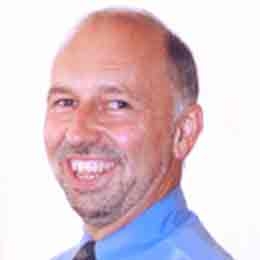
On a cold windy November evening there was barely a soul on the streets of Harrow, North West London, with most people sensibly opting for a night in front of the box. In the middle of a long stretch of main road opposite a factory is not where you would expect to find a hive of activity but for some of the borough’s residents the Zoom Leisure Centre was the place to be.
Around one hundred young people, Harrow councillors and council officers braved the cold to attend an evening to discuss how to improve health services for young people in the area.
The aim of the event, organised by the local authority and the borough’s youth council, is to give young people an opportunity to get their voices heard by decision makers.
Paul Clark, director of the children’s services at Harrow, says that the evening is about ensuring young people are able to influence the issues which affect them. “We are committed in this council to change the services so they meet their needs,” he explains.
The evening begins with a series of dances from community dance group Elevate to break the ice and then everyone goes into groups to discuss different health topics. The groups are comprised of young people themselves, councillors and council officers and each has a facilitator to help shape the discussions. Topics covered include sexual health, healthy eating and mental health, physical health, alcohol and drug use and improving access to local health services.
The sexual health group is facilitated by Jean Bradlow, director of public health in the borough, and a sexual health nurse is also on hand to help the discussion. “In Harrow at the moment we are looking at our sexual health services and saying are they friendly to young people and if they are not then how can we make them so,” explains Bradlow.
The young people in the group are encouraged to speak out about their experiences and about what the issues are in Harrow. Each member’s contribution is recorded and then at the end of the session these are fed back to the room as a whole so everyone hears views on each topic.
There is then a break after which the group reconvenes to look at potential solutions to the difficulties they have raised. Problems highlighted by the health services group include health professionals talking to their parents or carers rather than the young people themselves. The group also came up with the idea of having certain times within GP surgeries devoted solely to young people in an attempt to make them friendlier.
The solutions from each topic group are once again fed back to whole room at the end of the discussion. The event organisers are keen to stress that the aim of the evening is for the ways forward identified to be translated into action rather than simply remaining on paper, as can sometimes be the case in consultations.
The evening is one of a series, each of which looks at a different topic, and more are scheduled to take place in 2006. The young people seemed enthusiastic about being taken seriously and the numbers present at the end of the evening pretty much matched those at the start – as any seasoned conference goer will tell you a sure sign of a successful event.


 Assistive technology and dementia: practice tips
Assistive technology and dementia: practice tips  A trauma-informed approach to social work: practice tips
A trauma-informed approach to social work: practice tips 




 Find out how to develop your emotional resilience with our free downloadable guide
Find out how to develop your emotional resilience with our free downloadable guide  Develop your social work career with Community Care’s Careers and Training Guide
Develop your social work career with Community Care’s Careers and Training Guide  ‘Dear Sajid Javid: please end the inappropriate detention of autistic people and those with learning disabilities’
‘Dear Sajid Javid: please end the inappropriate detention of autistic people and those with learning disabilities’ Ofsted calls for power to scrutinise children’s home groups
Ofsted calls for power to scrutinise children’s home groups Seven in eight commissioners paying below ‘minimum rate for home care’
Seven in eight commissioners paying below ‘minimum rate for home care’
 Facebook
Facebook X
X LinkedIn
LinkedIn Instagram
Instagram
Comments are closed.